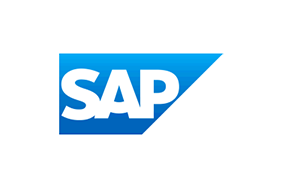Transactional Carbon Accounting: Financial-Grade Precision Across the Value Chain
Published 11-21-23
Submitted by SAP

As businesses and organizations tackle the reduction of their carbon footprint to achieve net-zero emissions, they are scrutinizing the accuracy and availability of their carbon emissions data, especially for scope 3 emissions. Current carbon accounting processes use a significant amount of estimations and averages due to the lack of consistent calculations and effective data sharing across the value chain. Because of this lack of connectivity, these processes are not connected to other important datasets providing procurement, financial or operational data. With stakeholders, including regulators, investors, and customers increasingly holding executives accountable for their organization's emissions, and their annual audit and disclosure, these outdated processes are no longer fit for purpose. Many leaders are now exploring how to upgrade their carbon accounting capabilities to deliver more accurate data with transparency and precision.
Implementing transactional carbon accounting helps solve these challenges with its three distinct capabilities that must occur in sequential order:
- Recording and managing actual emissions data from operations and across the value chain
- Exchanging standardized data
- Connecting the emissions data with financial and operational data
The result is a transaction-based reporting capability that unlocks the ability to make business-case decisions that fully account for financial, operational, and environmental costs and impacts.
Transactional carbon accounting, or ledger-based carbon accounting, refers to the ability to combine enterprise-wide financial and carbon data down to the transactional level. A transactional carbon ledger is embedded within key financial capabilities enabling the ability to track and quantify the amount of carbon emitted within operations and across the value chain. With a transactional carbon accounting strategy, organizations can transform from top-down, estimated, average factor-based accounting strategy to a bottom-up, measured, precise, transaction-based accounting strategy.
View the full white paper here.

SAP
SAP
SAP’s strategy is to help every business run as an intelligent, sustainable enterprise. As a market leader in enterprise application software, we help companies of all sizes and in all industries run at their best: SAP customers generate 87% of total global commerce. Our machine learning, Internet of Things (IoT), and advanced analytics technologies help turn customers’ businesses into intelligent enterprises. SAP helps give people and organizations deep business insight and fosters collaboration that helps them stay ahead of their competition. We simplify technology for companies so they can consume our software the way they want – without disruption. Our end-to-end suite of applications and services enables business and public customers across 25 industries globally to operate profitably, adapt continuously, and make a difference. With a global network of customers, partners, employees, and thought leaders, SAP helps the world run better and improve people’s lives.
More from SAP

